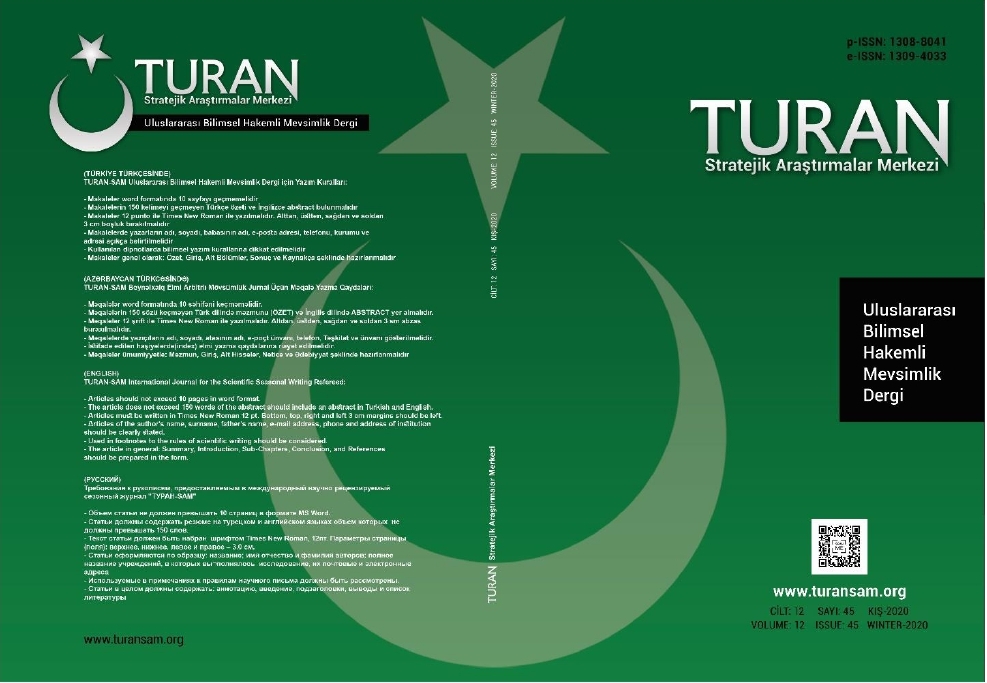THE ANALYSIS OF NATIONALIST LEADERSHIP THEORIES ON THE EXAMPLE OF MUSTAFA KEMAL ATATURK
THE ANALYSIS OF NATIONALIST LEADERSHIP THEORIES ON THE EXAMPLE OF MUSTAFA KEMAL ATATURK
Author(s): Ali Nazmi ÇoraSubject(s): Political history, Government/Political systems, International relations/trade
Published by: Sage Yayınları
Keywords: Atatürk; Leadership; Turkish Ideology; Strategy; Freedom; Independence;
Summary/Abstract: The objective of this study is to investigate the leadership core strategies of Mustafa Kemal Atatürk that played the key role in his national successful leadership practices for developing the leadership strategies for those leaders and managers who are seeking solutions for many common national and global problems that became a threat to human life (Burns, J. M. 2010, Depree, M. 2004. AKTAN, Can, 2003). The study covers the Turkish national leadership strategies for developing individual and national freedom, independence, equal opportunities, prosperity and social unity as a shared vision and the necessary strategies of democratization, independent economy, industrialization, military power, environmental protection, fair globalization and contemporary knowledge for leaders and people for its successful development and continuous improvement. These strategies provide some valuable lessons for contemporary leaders and managers (AYTÜRK, Nihat, 1990, Erickson, E. J. 2013, Cora 2016) Mustafa Kemal Atatürk, founder of the Republic of Turkey (Mango, 2004, Cora, 2014). He has realized a fundamental transformation process in administrative, social, economic and cultural life by establishing a new state of an empire with all aspects (Ataturk, Nutuk 2016, Atay, F. R. 1966).
Journal: TURAN-SAM
- Issue Year: 12/2020
- Issue No: 45
- Page Range: 102-112
- Page Count: 11
- Language: English

